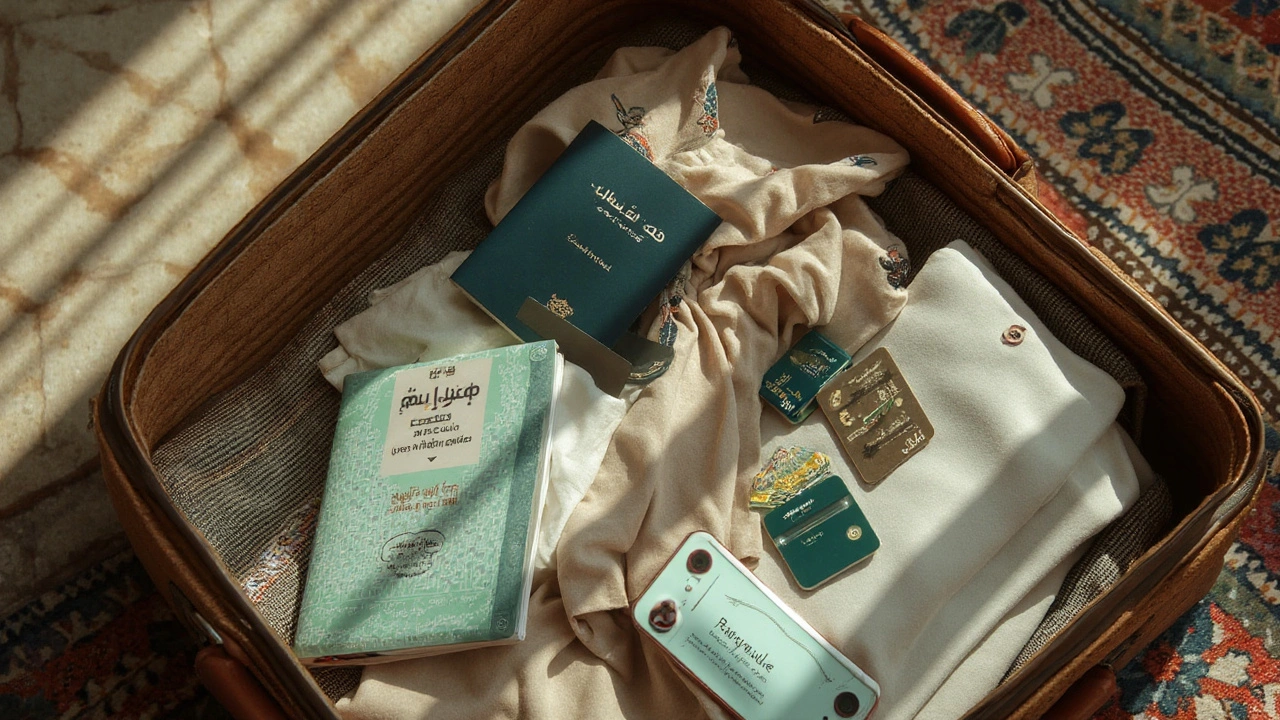Here’s the truth most hotels won’t put on the booking page: in most of the world, nobody cares if you’re married. You book, you check in, you sleep. But in a handful of countries-usually where morality laws or strict social codes apply-the front desk may ask questions you didn’t expect. This guide shows you where it’s fine, where it can get awkward or risky, and how to book smart so your trip doesn’t stall at reception.
TL;DR
- In North America, Europe, and most of Asia-Pacific, unmarried couples can share a room without issues.
- In parts of the Middle East, North Africa, and South Asia, the law or hotel policy may restrict locals, ask for marriage proof, or quietly allow foreigners.
- Hotels set their own rules. Even where it’s legal, a property can still refuse-check policy before you book.
- Bring valid ID for both guests. If staff ask awkward questions, keep it calm and factual.
- If refused at check-in, ask for a same-floor twin or two rooms, or switch to a chain hotel used to international guests.
Quick answer: when can an unmarried man and woman share a hotel room?
The short version: yes, in most countries. Booking an unmarried couple hotel room is routine in the US, Canada, UK, EU, Australia, New Zealand, much of East Asia (Japan, South Korea), and tourist-heavy parts of Southeast Asia (Thailand, Vietnam, Singapore). Staff won’t question your relationship status; they just need government-issued ID that matches the reservation.
Where it gets tricky: a handful of countries make sex outside marriage illegal, or they enforce religious morality codes for citizens. Hotels there sometimes ask for a marriage certificate-often for local couples, not foreign tourists. And even in countries where the law is silent, an individual hotel might still choose to refuse unmarried couples. It’s rare, but it happens, especially with smaller independent properties.
Who actually enforces this? Not usually the police. It’s the hotel manager interpreting local law, risk, and reputation. That’s why one property in the same city can wave you through, while another insists on papers.
How laws and hotel policies differ by country (2025 snapshot)
I’m not your lawyer, but here’s what travelers run into in 2025, with credible sources to anchor the claims. Laws change, so double-check just before you fly.
| Region/Country | Law on cohabitation/sex outside marriage | Typical hotel practice | Notes / Sources |
|---|---|---|---|
| USA, Canada | No restrictions | No issues; ID needed | Standard hospitality norms |
| UK, EU (Schengen), Ireland | No restrictions | No issues | Consumer protection laws and anti-discrimination norms apply |
| Australia, New Zealand | No restrictions | No issues | Routine for domestic and foreign travelers |
| Japan, South Korea | No restrictions | No issues | Privacy-focused check-in |
| Thailand, Vietnam, Singapore | No restrictions for consenting adults | No issues | Mainstream hotels won’t ask about marital status |
| UAE (Dubai, Abu Dhabi) | Cohabitation decriminalized in 2020; reflected in 2021 Penal Code reforms | International hotels accept unmarried couples | UAE legal reforms 2020; Federal Decree-Law No. 31 of 2021 |
| Saudi Arabia | Sex outside marriage illegal, but tourism rules relaxed | Foreign couples usually allowed; locals vary | 2019 hotel regulation change by tourism authority allows foreigners to book without proof |
| Qatar | Sex outside marriage illegal | Top hotels host foreign couples; discretion expected | Practice eased around major events; law unchanged |
| Egypt | Adultery laws; conservative enforcement | Foreigners: often fine. Egyptians: hotels may ask for marriage certificate | Common hotel policy, especially for locals |
| Morocco | Sex outside marriage criminalized (Penal Code Art. 490) | Foreign tourists often fine; Moroccans may be refused without proof | Enforcement inconsistent but real |
| Jordan | No explicit ban, conservative norms | Chain hotels flexible; smaller hotels may ask locals for proof | Policy varies by property and guest nationality |
| Turkey | No restrictions | No issues | Secular legal framework |
| India | No law bans unmarried couples sharing rooms | Most hotels allow; some refuse by policy | Indian Penal Code has no such ban; right to privacy (Puttaswamy, 2017) supports adult choice |
| Pakistan, Bangladesh | Conservative enforcement | Foreigners in top hotels: usually fine; locals may face refusal | Hotel discretion plays a big role |
| Indonesia (incl. Bali) | New Criminal Code (Law No. 1/2023) criminalizes extramarital sex/cohabitation on complaint; rollout planned for 2026 | Tourists: low practical risk unless a close relative complains | Government statements indicate limited enforcement for tourists; watch for updates |
| Malaysia | Federal law: no general ban; religious morality laws apply to Muslims in some states | Foreigners and non-Muslims: typically fine; local Muslim couples may face checks | State religious departments conduct khalwat raids in some regions |
| China | No restrictions for adults with valid ID | Hotels require ID scan; otherwise fine | Security-focused but not about marital status |
| Kenya, South Africa | No restrictions | No issues | Standard international practice |
| Mexico, Caribbean | No restrictions | No issues | Resorts won’t ask about marital status |
Why the mismatch between law and hotel behavior? Hotels balance legal risk, brand image, and local norms. Chains with global compliance teams lean toward inclusive check-in if the law allows. Smaller properties may be cautious, especially in conservative towns or with local couples.
Citations, no links: UAE-legal reforms (2020) and Federal Decree-Law No. 31 of 2021; Saudi-hotel rule updates from the national tourism authority in 2019; Indonesia-Law No. 1 of 2023 (new Criminal Code) with enforcement by complaint and a future effective date; India-no statute banning unmarried couples, with privacy principles recognized by the Supreme Court in Puttaswamy (2017); Morocco-Penal Code Article 490.
Booking and check-in playbook (fast, simple, low-stress)
Use this as your step-by-step checklist wherever you go. It’s designed to reduce the chances of an awkward front-desk moment.
- Before you book, scan the policy: In conservative regions, look for lines like “Unmarried couples welcome” or “Local laws apply.” If unclear, message the hotel: “Do you accept two adults traveling together who are not married?” Keep it neutral.
- Pick the right property: International chains and higher-end city hotels are usually smoother with IDs and fewer questions. Boutique hotels can be great-just confirm policy first.
- Reserve for two adults, full names: Match the names to the IDs you’ll present.
- Bring valid ID for both guests: Passport for foreigners; national ID for locals. Some countries scan IDs for the police log; that’s normal.
- At check-in, keep it simple: Hand over IDs. If asked about marriage, try: “We’re colleagues/friends/partners traveling together.” You don’t have to overshare.
- If they refuse the room: Ask for two beds or two single rooms on the same floor. If the policy is strict, request a fee-free cancellation and move to a different hotel.
- At all times: Be respectful of dress codes and public displays of affection. In some places, the issue isn’t the room-it’s behavior in public areas.
Pro tips that save headaches:
- Payment method: Prepay through a reputable OTA (online travel agency) and choose “pay now” to lower the chance of a front desk back-and-forth.
- Room type: A twin room can be an easy compromise if a property seems nervous.
- Arrival time: Daytime arrivals are calmer; late-night staff can be stricter or uncertain about policy.
- Privacy: If you’re worried, ask for “discreet check-in” or “contactless check-in.” Many hotels now offer it through their app.
- Local partners: If your companion is a local in a conservative country, pick a big international hotel used to multinational guests.

Risks, workarounds, and how to read the room
Here’s what can actually go wrong-and how to prevent it.
- Soft refusal at reception: Staff say they “can’t” check you in together without a marriage certificate. Ask to see the written policy. If it’s policy (not law), push for a fee-free cancellation.
- Policy applies only to locals: A hotel may allow foreign couples, but not locals. If your partner is local, call ahead and name that detail.
- Police visits: Rare for tourists. More common are ID checks or routine guest log audits in some countries. Stay calm, provide ID, and don’t argue law on the spot.
- Refund battles: If you were refused against what the listing promised, screenshot the listing and contact the OTA. Document everything politely.
- On-property conduct: In conservative places, PDA in public areas is what triggers complaints, not the room itself.
Quick decision tree:
- Are you in North America, Europe, ANZ, Japan, Korea, Thailand, or Singapore? Book together without worry.
- In UAE or Saudi? Foreigners are typically fine in mainstream hotels. Still, book chains and carry passports.
- In Morocco, Egypt, Pakistan, Bangladesh, parts of Malaysia? Expect possible questions-message the hotel first.
- In Indonesia (Bali included) before 2026: Low risk for tourists unless a close family member files a complaint. Stick to respectful conduct.
- If refused: Try twin beds or two rooms. If still blocked, request fee-free cancellation and move.
Etiquette that travels well:
- Dress rules: Beachwear in lobbies raises eyebrows in conservative cities. Keep a cover-up handy.
- Language: Avoid jokes about “honeymoon” if you’re unsure about the hotel’s stance.
- Photos: Be careful about filming staff or arguments; in some countries that escalates things.
What about safety? If a staff member pressures you or suggests a bribe, step away from the desk, ask for a manager, and speak clearly: “I’d like to cancel without penalties because the property can’t honor my confirmed booking.” Then call your OTA’s support line.
Examples, scripts, and a quick-check list you can save
A few real-world scripts help when you’re tired and just want the room key.
Message to a hotel in a conservative region (before booking):
- “Hello, we’re two adults traveling together. We’re not married. Is that acceptable under your policy?”
If the hotel replies “local laws apply,” follow up with:
- “Understood. We’re [nationalities]. We will present passports at check-in. Can you confirm if that is acceptable?”
At check-in if questioned:
- “We booked a double for two adults. Here are our IDs. If your policy requires two beds, we’re happy to switch to a twin.”
If refused and you want out:
- “The listing didn’t state a marriage requirement. Since you can’t honor the booking, please cancel with no fee so we can rebook elsewhere.”
Workarounds that are reasonable:
- Two rooms, same floor: Keeps the hotel compliant without derailing your plans.
- Twin-bedded room: Often seen as “non-romantic,” which can bypass a skittish policy.
- Business framing: “We’re colleagues on a project.” It’s a tidy, true-enough line for many trips.
Quick-check list before you fly:
- Search: “hotel unmarried couples [city] policy” and check recent traveler reviews for mentions.
- Book a chain or well-reviewed international hotel in conservative cities.
- Bring valid ID for both travelers, with matching names to the booking.
- Keep a screenshot of the hotel’s policy page and your confirmation email.
- Have a Plan B hotel pinned on your map within 10-15 minutes of your first choice.
Mini‑FAQ: straight answers to the follow-ups you’re probably thinking
Is it illegal for unmarried couples to share a room in India?
No. There’s no law against consenting adults sharing a room. Some hotels choose not to host unmarried local couples; that’s policy, not law. Police “raids” you see in viral clips usually cite other issues like suspected sex work or public obscenity, which don’t apply to private, consenting adults.
What’s the deal in the UAE now?
The UAE decriminalized cohabitation in 2020, later reflected in the 2021 Penal Code updates. International hotels in Dubai and Abu Dhabi routinely check in unmarried couples. As always, carry passports and be respectful in public areas.
Will Saudi hotels ask for a marriage certificate?
Since 2019, regulations allow foreign tourists to book rooms without showing marriage proof. In practice, top hotels in Riyadh, Jeddah, and NEOM areas check in foreigners without issue. Local couples may still face checks.
Should I worry in Bali after Indonesia’s new criminal code?
The law, passed in 2022 (Law No. 1/2023), criminalizes extramarital sex and cohabitation but requires a complaint from a spouse/parent/child, with implementation expected in 2026. Tourists are unlikely to face checks absent a family complaint. That said, keep conduct discreet and watch for updates.
What about Morocco and Egypt?
Morocco’s Article 490 criminalizes sex outside marriage, and some hotels ask locals for a marriage certificate. Foreign tourists are often allowed without questions. In Egypt, some hotels require marriage proof for Egyptian couples; foreigners typically aren’t asked.
Can a hotel legally refuse us even if there’s no law against it?
Yes, private hotels can set house rules as long as they don’t violate anti-discrimination laws. If policy isn’t disclosed before booking, you can argue for a free cancellation.
Will two single beds solve the problem?
Sometimes. A twin room can be an acceptable compromise for cautious properties.
What if staff pressure us for a bribe?
Don’t engage. Ask for a manager, request a fee-free cancellation, and rebook elsewhere. Report the incident to the OTA.

Next steps and troubleshooting by scenario
Foreign tourists in the Middle East/North Africa:
- Book recognized chains. They have clear SOPs and are used to international norms.
- Carry passports and avoid PDA in public areas.
- If told “no unmarried couples,” switch to a twin or two rooms, or ask for free cancellation and leave. Timebox the discussion to 10 minutes max.
Domestic travel in India or Pakistan:
- Check recent reviews for mentions like “unmarried couples accepted.”
- Prefer business hotels in central districts. They’re less judgmental than small guesthouses.
- If you’re local-local, bring IDs and keep the “colleagues” framing handy if staff are nosy.
Bali and Indonesian islands (through 2025):
- Stay in mainstream resorts or reputable villas. They won’t police your relationship.
- If staying in homestays, confirm policy in chat before booking.
- Mind noise and neighbor complaints; the new law activates on complaints by close family.
North America, Europe, ANZ, East Asia:
- Book normally. This isn’t a thing here.
- IDs must match the reservation; that’s the only consistent requirement.
Mixed-nationality couples where one partner is local in a conservative country:
- Name that detail when you message the hotel. “One of us is local; is that okay?”
- Choose large international hotels in business districts.
- Have a backup property saved in your maps.
If things go south at the desk:
- Stay calm; ask for the written policy or manager.
- Offer twin or two rooms; if no, request a fee-free cancellation citing undisclosed policy.
- Document the conversation. Then rebook via your OTA’s app-filter for “international chain.”
One last thought: the fastest way to avoid drama is simple-message the hotel before you book. A 20-second note can save a 20-minute desk debate.
Escort Dubai